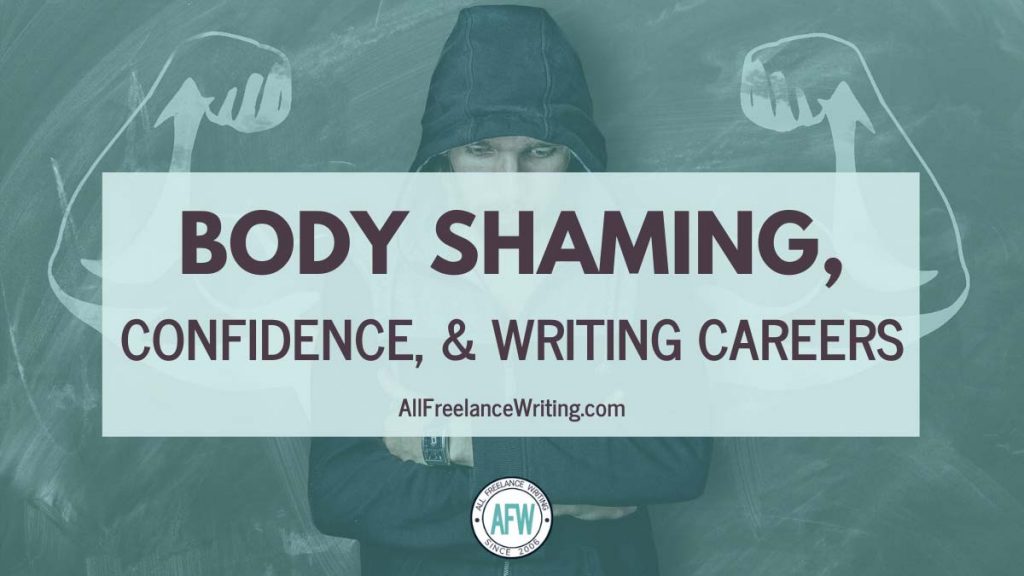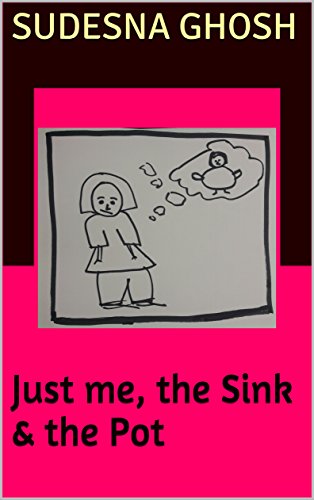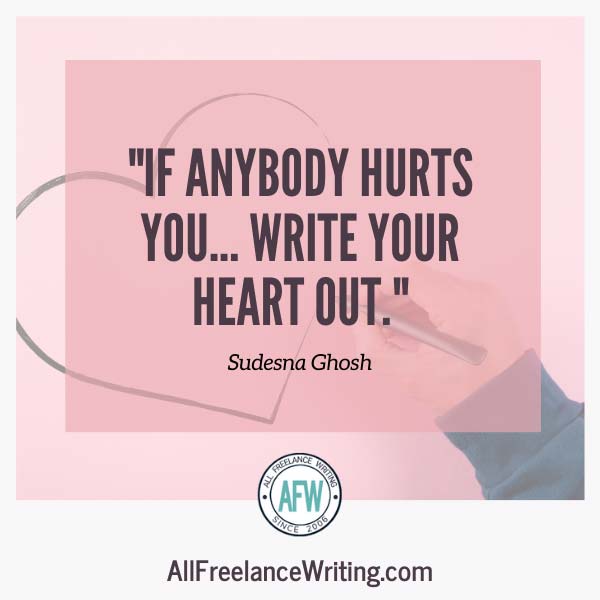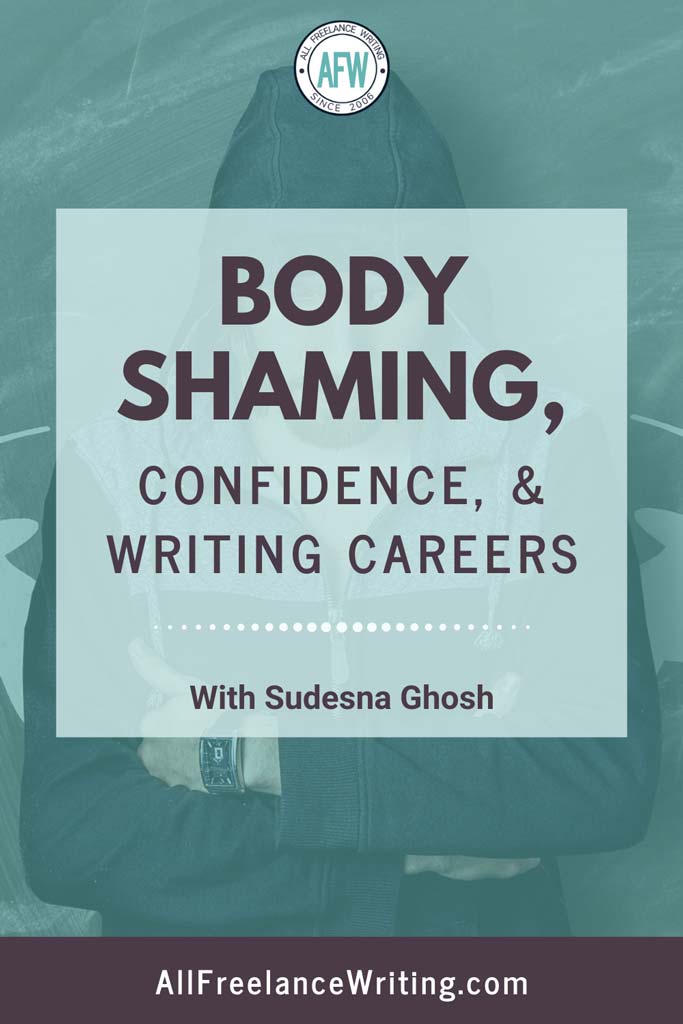
This will be a long one, and we're going to get personal today. Consider yourself warned.
Recently, fellow writer Sudesna Ghosh shared an article on Twitter. That article centered around body shaming of young women, a pet topic of hers and something she's written extensively about.
I could relate to the story Sue shared. And knowing how important this topic has been to both of our writing careers, I asked her to tackle it with me on the blog.
What does body shaming have to do with being a writer?
It all comes down to confidence – an issue I’m passionate about because I want newer writers to know they’re not alone when they struggle to find it in themselves.
In a recent post, I talked about my sometimes extreme struggles with confidence and fear in other creative pursuits like my music and artwork. I talked about this on the podcast with Dann Alexander. It came up again on the podcast with Princess Jones.
And we’re going to talk about confidence again today – specifically how a lack of it when we’re younger can influence the trajectory of our careers.
Writing success is largely about putting yourself out there.
You won’t succeed as a professional writer if you lock yourself up in a room to write but never promote that work.
Self-promotion requires a certain amount of confidence. You promote yourself as much as your writing. And if you’ve been subjected to body shaming, that kind of confidence can be difficult to come by.
If you’ve been taught you’re:
- Too short
- Too tall
- Too fat
- Too thin
- Too “different”
Ultimately, it all translates into the same thing:
You’re “not good enough.”
And once you have that in your head, it can seep into other areas of your life:
“I’m not good enough to write professionally.”
"Clients will never think my writing is worth more than a few dollars."
“People will hate my books and only leave negative reviews."
“My blog isn’t good enough to deserve readers or subscribers.”
"I'm not 'pretty enough' to put my face on book jackets or ever do book signings." (I hear this one from authors all the time.)
“I’m not good enough.”
If you’ve ever thought that, I’m with you. It sucks.
But let me make something very clear:
You might still be improving your skills and learning your craft. But, as a person, you are good enough. Right now. End of story.
Anyone who tells you otherwise… anyone who even thinks otherwise…
They aren’t worth a moment of your time.
When other people treat you as “less than” in any way, that doesn’t say anything about you. But it says a hell of a lot about them.
I know in the moment it doesn’t feel that way.
But you don’t have to let some shallow waste of space have any influence over you whatsoever. Not when it comes to your self-worth… your family life… your friendships… your love life… and sure as hell not your writing career.
Body shaming isn’t a singular issue.
It can happen to anyone -- male, female, young, old, and everyone in between.
And it happens for any number of reasons -- weight, height, muscle mass (or lack thereof), disabilities, your hair, your skin... you get the idea.
People are assholes. They'll tear each other down over pretty much anything.
Sue and I want to give you some perspective on this, whether you’ve gone through it and feel alone or even if this hasn’t happened to you and you don’t understand what some of your peers go through or how you may have even contributed to it.
We’re going to give you a bit of background on the types of body shaming we’ve dealt with over the years and how it’s influenced our confidence and our careers.
Let’s start with Sue’s story and learn a bit about her first fictional book which relates to this issue.
Hating Your Body, Hating Yourself
By Sudesna Ghosh
“You’re so pretty. You’d look so beautiful if you lost weight.”
I grew up hearing these words about a million times.
I also spent painful days during school lunch breaks, doing my best to ignore my hunger pangs. Why? Because I thought overweight girls weren’t supposed to eat in front of people.
Fast forward to my 20s – I felt like an unattractive blob and hid from people to avoid the fat shaming.
Baggy clothes, believing that I didn’t deserve love, sex or anything else in that area, and more.
 And then I did what most writers do and threw years of emotional turmoil and experiences into a word processing document. Just me, the Sink & the Pot was born.
And then I did what most writers do and threw years of emotional turmoil and experiences into a word processing document. Just me, the Sink & the Pot was born.
Pamela, my protagonist, is me plus every other fat girl I’ve known.
She feels constant insecurity about her body, wishes she looked like everybody else, and spends sleepless nights wondering if she will ever get that first kiss.
My first nonfiction book was about parenting teen girls, so I can tell you that the teens are indeed terrible in many ways, but add fat shaming and negative body image to the mix and you have yourself misery that can plague you till you’re much older. Or possibly, your entire life.
In my book, Pamela is ashamed of her body so much that it affects everything that she does.
For example, when she starts dating a guy in school, she can’t stop being repulsed by his fat. That screws up their relationship and puts her back to square one – lonely and unhappy.
When she manages to form a close friendship with a girl in class, the other so-called normal-sized girls steal her friend from her. Even Pamela’s own sister is embarrassed to be seen with her.
So yeah, life sucks when you’re fat.
I hope that people of every size and shape read Just me, the Sink & the Pot for the truth. I want teachers, educators, parents, mental health experts to read it. While a lot is being said and done to promote body positivity, we need to start from the beginning to make sure every child understands what they are doing when they criticize each other’s appearances or label people ‘fat’ or ‘skinny.’
An overweight child who is frequently body shamed carries the extra weight of hurt with herself.
Some girls resort to self-harm, including starving themselves into an eating disorder or cutting themselves. That is serious stuff that shouldn’t happen and can be prevented if we start intervening earlier.
From my personal experience, introducing a diverse group of role models helps. I’ve also noticed that parents’ behavior is mirrored by their kids. So why not spread some empathy?
About Sudesna Ghosh
 Sudesna (Sue) Ghosh is an author based in Kolkata, India. After writing two nonfiction books, she began pursuing fiction with Just me, the Sink, & the Pot, a story touching on the issues of body shaming and self-esteem. When she isn't writing, she has her nose stuck in a book or spends quality time with her cats.
Sudesna (Sue) Ghosh is an author based in Kolkata, India. After writing two nonfiction books, she began pursuing fiction with Just me, the Sink, & the Pot, a story touching on the issues of body shaming and self-esteem. When she isn't writing, she has her nose stuck in a book or spends quality time with her cats.
Find Sue on Twitter or LinkedIn
The Effect of Body Shaming on a Writing Career
I followed up with Sue to ask her how her experiences with body shaming have directly impacted her professional life.
What influence did body shaming in your youth have on your professional confidence as an adult?
I was fortunate to not face much body shaming in my college years at U of Rochester. It was refreshing.
But then a few years later, in my mid and late 20s I had colleagues here commenting about my food habits and my clothes.
I sometimes wondered if HR would help, but realized fat people are shamed everywhere. It's normal. Acceptable.
Has this affected the way you put yourself out there as a writer now, such as the ways you will or won't market your work?
I did one Facebook video recently after several takes to make sure my facial features looked their best. I do shy away from photos at events and most everywhere I go.
What's helped you overcome these kinds of confidence issues to become a successful writer?
The writing process itself has helped immensely.
I chose to write full-time because I feel confident when I write. It was probably the only thing I was confident about during my childhood too when I'd write and read out my stories in school.
My mother's support helped too. She kept me focused on my strengths and tried her best to convince me that I am not ugly.
If you could give young writers dealing with body shaming one piece of advice, what would you tell them?
I'd say this: We're all born different. Look around you. Shape, size, color, interests, skills.
Be happy if you are healthy. Exercise to be fit. If anybody hurts you a lot - write your heart out.
Body Shaming on the Home Front
Many young people deal with the kind of body shaming Sue talked about – being criticized by their peers at work or at school.
But when you go home at the end of the day, you get a reprieve. You’re in a safe, loving environment where you don’t have to feel judged in that kind of way.
Right?
Not always. Peers weren’t my problem. Home was.
A family member seemed to delight in nothing more than making me feel awful about myself.
They constantly told me how fat I was.
For context, what may be the only photo left of me from back then can be found on this page -- lost most in a fire. I was slightly heavier than usual because of missing summer training due to the broken ankle, but it's probably fairly close to normal.
I didn't have the stick thin figure this family member considered ideal, and that meant it was okay for them to put me down all the time. Look. That's great if that's your body type. But even as an athlete, it would never be natural for mine.
So I hated my body. Not because there was anything “wrong” with me at the time. But because I constantly had someone telling me there was something wrong with me.
Sometimes I treated myself worse than they did.
Hating my own body sometimes meant I’d starve myself because nothing else worked. But then there were times I'd turn to food for comfort, almost to spite this person. That kind of yo-yo behavior can be extremely destructive, especially when you're young.
That stopped when I moved away for college. But I still struggled with similar things for a while. For example, I’d go to the track behind my dorm after dark, just so no one else would be around (neither safe nor brilliant in hindsight). And I’d run mile after mile to “punish” myself for not being perfect.
And, similar to Sue, I went out of my way to hide my body beneath baggy clothes when I was young. I did everything I could to fade into the background in my daily life.
Yet being invisible was a luxury I didn’t have.
You couldn’t miss me if you tried. I’m six feet tall, and I've been around this height since middle school.
Body shaming comes in all shapes and sizes.
We often think about body shaming only in terms of fat shaming and being intentionally cruel. But it’s more than that.
I also got it when it came to my height, even from well-intentioned folks.
People always assumed I was “lucky” to be tall. I’d hear it from random strangers all the time.
“You’re going to be a model someday.”
“I bet you’re great at basketball.”
“I wish I had your long legs.”
“You're so lucky. Guys love tall girls.”
Hahahaha... no.
While I'm tempted to tell you what it was really like, from being called a whore repeatedly because skirts show a little more leg on you to the way some men treat you because they see your height as some inexplicable threat to their masculinity... that would be a post all its own. So this is a rare occasion I'll spare you from a rant.
Look. I know most of these women meant well when they'd say these things. But here’s the thing. To me, what they were really saying was:
“You’re different; you’re not like other girls; and because of that, I feel it’s okay for me to walk up to you even though I don’t know you and talk about your body.”
That was not okay.
On top of that, I was already incredibly self-conscious about my height. I wasn't just the tallest girl around. I was the tallest kid in my entire school for years. And it took a long time to stop feeling like a total freak of nature because of that.
And it was even worse at home a bit later on. A member of my family decided I was “too tall” and snuck me off to the hospital hoping doctors would screw with my growth hormones to stop me from growing any more. Thankfully once I realized what was happening, it was put to a quick stop. But yeah… that was a level of body shaming all its own -- your family hating your body so much they want someone to step in and "fix" you... and right as I was finally starting to feel comfortable with my height.
Real f*ing nice.
Body shaming goes beyond family and friends.
I wish I could say those were the only two times things like these were an issue. But no.
I had an ex who used body shaming as a control tactic.
He’d be full of praise and compliments when I played into his image of a perfect girlfriend and abided by his rules. And he’d insult my weight, my height – anything to hurt me – if I dared to disagree with him or did anything without his approval.
Typical abusive bullshit -- insult you, make you feel like no one else could ever want you so you should consider yourself lucky he's with you, then threaten to leave if you don't do exactly as he wants.
I got out thankfully. But it took much longer than it should have.
When body shaming comes from a partner, that's especially hard. That's supposed to be someone who loves you unconditionally, who has your back. Not someone who actively tries to cut you down.
And that came early on in my business, when I was face-to-face with most clients (music PR), organizing charity events, having to speak in front of crowds at some of them... the last thing I needed was some jackass breaking down the confidence I'd worked so hard to build. But it was so bad at times, I nearly quit.
It turns you into your own worst enemy.
Eventually body shaming takes its toll on you.
You believe the awful things people say about you. Or you start to hate yourself for not living up to the expectations they set.
So you get in your own way. For me, it started with relationships.
Eventually, that carried into my business.
I'm guilty of self-sabotage even now.
My self-confidence took another physical hit a few years ago. And it's had a big impact on my business.
Basically, I got very sick, it took 3 years to find out what was wrong, and it resulted in me putting on quite a lot of weight very quickly. I’ve already shared the background of what happened on the blog, so I’ll spare you most of it. You can read about it here if you’d like.
Yet no one else gave me grief about it. But do you know who did?
Me.
Until I knew what was wrong, I blamed myself. And a part of me hated myself all over again.
So even now I find myself dealing with the kinds of body-centric confidence issues I faced as a teen again. Sometimes worse.
While I'm better now, most of that weight is still there. It's going to take time, and a lot of work. But the weight itself isn't even the problem.
The problem is how rapidly my body's changing. Sometimes that's good. Sometimes that's bad (like my lovely double chin that I didn't have before losing the first round of weight -- thanks gravity!).
I'm not always sure. And that leads to more self consciousness, self-doubt, and self-sabotage at times, specifically with my business.
How does a negative body image impact my writing business?
Oh, in plenty of ways. For example:
- I miss opportunities (like turning down video interviews and speaking engagements).
- It makes me hate being in crowds even more than I already do as an introvert. So I tend to avoid things like conferences.
- It makes me much more uncomfortable working with local clients because I don’t want to meet face-to-face. I just want to quietly get the work done. Thankfully most of my prospects are overseas anyway, so that makes life a bit easier.
- I hate video-chats with clients and colleagues. It goes back to all those years of wishing I was invisible I suppose.
- Similarly, this is a reason I haven't done video webinars yet.
- On the PR side of things, I don't tend to organize and host events anymore. Could I still get on a stage in front of a crowd and talk? Absolutely. I love public speaking. But having everyone's eyes on me? No. That's a problem again.
I'm lucky that (recently) all it's really done is slow me down with things I'd like to do. It hasn't gotten in the way of actual client work. It doesn't affect most things related to blogging. I think it contributes a bit to my fear of sharing my fiction. But that might be the worst of it. It was much tougher early in my career and then when I first got sick. I had to re-learn how to get more comfortable with myself again. Still working at it. But getting there.
I'm also lucky that, while I have very little confidence physically at times, I have plenty of professional confidence. So I maintain my forward momentum even if it sometimes means taking an unexpected side road.
Just don't ask me to show up at your event or hop on a video interview. Then it's "Sorry Cupcake; ain't happenin'."

So how do you get past body image issues in business?
Damned if I know!
If you know the secret, tell me please. I'd love to stop worrying about these things.
All I can do is give you a few tips that have helped me through the worst of times. And I think looking at what Sue's done is really important here too.
1. Find something you love about yourself.
If you feel like you hate A, B, and C about yourself and it's hurting your confidence, focus on X, Y, and Z instead. (And this goes for people who are dealing with body shaming, but it doesn't have to be physical. This can help with any kind of self doubt you struggle with.)
For example, I hate my chin and my midsection. But I love my long legs and my chest. So when I find my confidence taking a hit, I focus on playing up those things I like instead of worrying as much about what I don't.
Then do similar with your writing career and what that lack of confidence is preventing you from doing.
For example, I hate video chats where I feel like a claustrophobic goldfish trapped in a bowl surrounded by judging, prying eyes. But I can sweet-talk a prospect into just about anything on the phone. So if I need to actually talk to a prospect instead of emailing, I don't avoid the interaction. I have that alternative.
2. Surround yourself with the right kinds of people.
When I was young, school was my safe place. My friends and classmates didn't make me feel bad because I wasn't as skinny as some of them, or because I was too tall, or anything else. Any issues I had there were my own. But those friends treated me like anyone else.
Find those people. When you're surrounded by people who let you be yourself without shaming you, without judging you, it won't matter so much when some random schmuck insults your body.
From talking to Sue, it sounds like she had a similar experience in school, with people who accepted her. And that's what matters. So try to do the same professionally. Connect with colleagues who have been through what you're going through. Or just surround yourself with people who "get you" and like being around you for who you actually are.
3. Channel your body image issues into something positive.
For me, it's all about looking for alternative solutions. If my confidence is too shot to do A, I'll get to the same end result by doing B.
For Sue, she channeled what she was feeling directly into her writing when she wrote Just Me, The Sink, and The Pot. And that's a fantastic idea. If you're an author, turn your experiences into a work that helps you professionally. Do it under a pen name if you need to. Or perhaps you'd rather write nonfiction, taking up body positivity as your personal cause in order to help others. Or heck, just write in a private journal to help you process what you're experiencing.
We're writers. Why not use writing to help us cope?
Look. Body shaming is a serious issue. It was bad enough coming from home when I was a teenager. I can't even imagine what young women deal with these days growing up in an Instagram era. If you have one in your life, please be a positive influence in hers.
What destroys your confidence when you're young can stay with you. Sometimes your entire life.
Your situation might not look exactly like Sue's or mine. Maybe it affects your writing or marketing differently too. But if you've been through similar, know you're not alone. And you can work past it. And you can build a successful writing career even if you're unsure of yourself at times.
If you've already done that, and if you're comfortable enough talking about it to share, I'd love to hear how you overcame body shaming and re-built a more positive body image and your professional confidence. You're welcome to leave a comment below or, as always, if you're not comfortable sharing publicly you're welcome to reach out privately via email. I love hearing from you.


Thank you so much for pointing out how supposedly “positive” comments about women’s bodies like “you’re so pretty, you’ll be a model someday” or “you’re so thin, I’m jealous!” are a bunch of bullshit and just as damaging as negative body-shaming comments.
And yes, if you can’t tell, those are two I received throughout my teens and college years. I’m still told those things. Ironically, the comments about me being so short (5’1″) didn’t and don’t bug me; it’s the ones that make me feel like I have to live up to someone else’s idea of what I should do with my body or what it should look like that screw with me the most.
I’m fortunately at the point in my life where I usually just do an internal eye-roll at anyone who says such things and outwardly dismiss the comment with a light-hearted (probably fake-sounding) laugh before moving on to another topic.
As for how this has affected my business? Gotta be honest: I fuckin’ own what I look like. I know I’m thin and attractive, so I’ll attend conventions dressed to the nines in my European (read: simple and classy) or retro outfits, and surprise the shit out of people who think I’m anything other than a writer, because after all, aren’t writers supposed to have no fashion sense and be unattractive recluses? I also make deliberate clothing decisions to help people remember me even more, usually with a particular scarf or hat. So I guess I’ve been fortunate enough that I haven’t been afraid to show myself in my business, but it took years for me to get to the point of being okay with MYSELF, regardless of what other people said was amazing about me.
Exactly. It reminds me of when men come up to us randomly on the street telling us to smile for them. They justify it saying they’re just trying to be friendly. But what they’re doing is masking misogyny under a veil of positivity. They’re telling us we have a responsibility to look and act a certain way for their amusement, and we’re not entitled to decide how we look or feel for ourselves. Most would never dream of saying the same thing to a man. Body shaming often happens in a similar way. People think it’s just about insults and judgments. But it’s not. When you focus only on one feature and act like nothing else about them is worthwhile, that’s a problem. When you put expectations on someone’s look or behavior because you think they should be what you want rather than what they want, that’s a problem. When you tell someone how much prettier / better / etc. they’d be if they were different (like Sue would hear when she said she was told she’d be so pretty if she lost weight), that’s an even bigger problem.
The model comments used to really upset me. I was an honor student. I was an athlete. I was a strong musician. Acknowledge me for what I can do, not what I look like. That should be the norm; not the other way around. If other women want to do that with their lives, that’s awesome for them. I did not. I had no interest in looking “pretty” for other people’s enjoyment. I had no interest in basketball (I’d even be told to quit soccer because I was “supposed” to play basketball instead — I lived for soccer). But apparently my height was considered my only asset.
I’m thankful I eventually embraced it. I can thank a few teachers, a soccer coach, and a PR professor for that. They not only acknowledged those other things about me over my body, but they showed me how to use my height to my advantage in ways I wanted to — in the game and in public speaking mostly.
I totally get what you’re saying about owning your look now. For you it’s things like conferences. For me it’s embracing a more dominant presence physically and using that to boost my confidence in business. It’s why I can speak my mind freely and not worry about pissing people off for example. And it’s not just how I operate; it’s basically my brand. I grew up extremely shy. I still am in some situations. So that professional confidence didn’t come easily. But without it, I’d have gone nowhere.
It sounds like we were both able to turn things around and use those things to our advantage. I just wish young people weren’t put in a position where they had to struggle with this crap as they’re still trying to figure out who they are. You either embrace it or you learn to hate these things about yourself. And not everyone comes out stronger on the other side.
Unfortunately, I think struggling with body image and looks is just a part of being human, especially in this day and age. But I also can’t imagine young women in the Middle Ages weren’t looking at the noblewomen passing by in their carriage on the streets and wishing they had that hair or that face powder or those incredible dresses.
I think it’s how we teach young people to deal with it that matters. Should I ever have kids, I’m going to expect them to deal with these problems, but I’m going to let the kids know a) I love them, b) they need to focus on who they want to be, and c) they do not need to let others dictate who they are or what they should look like (except for the obvious reason of them harming themselves to look or feel a certain way… then they better damn well listen to what true friends and loved ones are telling them).
Excellent advice all-around Bree.